
The Miracle is on the Inside - Pastor Brimingham
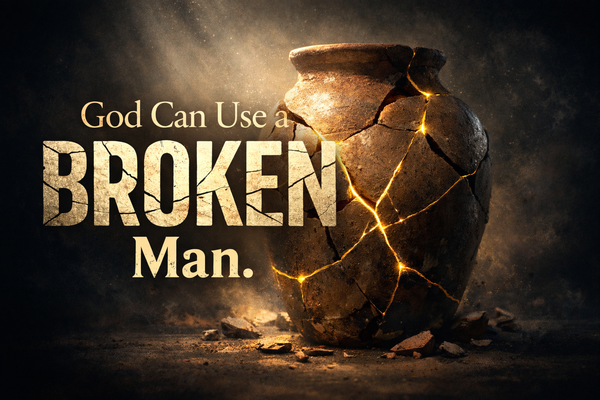
God Can Use A Broken Man - Pastor Brimingham

Signs That Show It's Time to Harvest - Pastor Brimingham
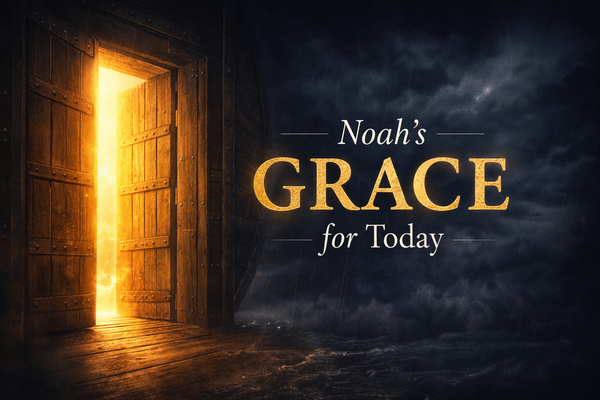
Noahs Grace for Today - Pastor Brimingham
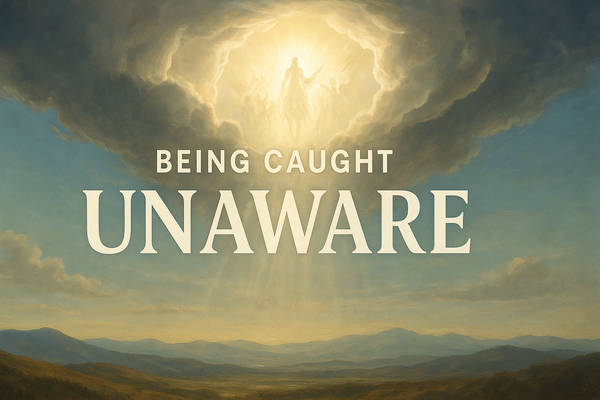
Being Caught Unaware - Pastor Brimingham
This sermon is a sober and urgent call to spiritual alertness. Across the Gospels—especially Luke 21, Matthew 25, and Mark 13 (with emphasis on verse 35)—Jesus repeatedly warns that His return will be sudden, unexpected, and decisive. The danger is not ignorance of prophecy, but complacency.
- The parable of the ten virgins highlights preparedness versus delay.
- Mark 13:35 stresses watchfulness because the timing is unknown.
- The passages from 1 Corinthians and Revelation reinforce the suddenness and certainty of Christ’s return—quickly, suddenly, in a moment.
- Acts 2:40 places responsibility squarely on the listener: vigilance, readiness, and personal response are required.
The message presses this truth: the greatest risk is not opposition, but being spiritually asleep when eternity interrupts time.
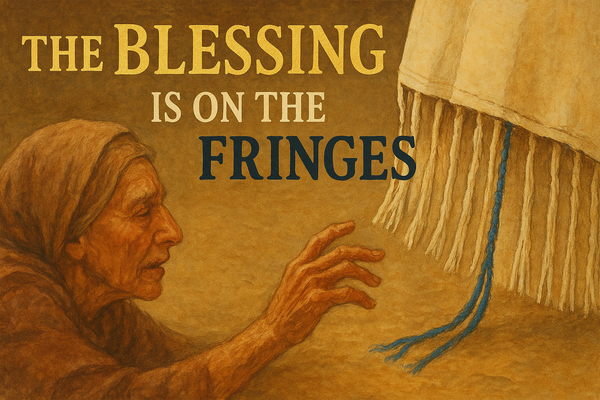
The Blessing is on the Fringes - Pastor Weeks
This was our 4th Anniversary Service for 2025
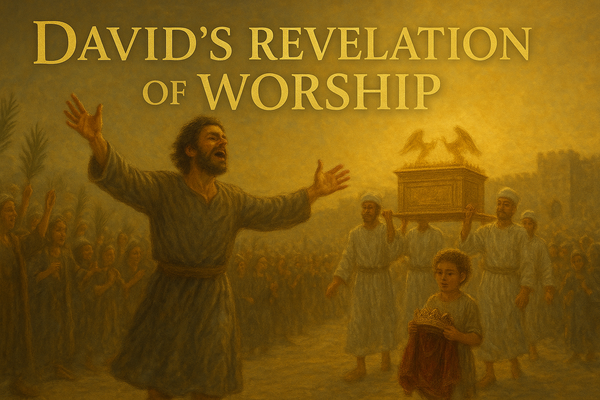
David's Revelation of Worship - Pastor Brimingham
This sermon explores David’s understanding of true worship — not as ceremony or duty, but as joyful, humble surrender before God’s presence. Psalm 122:1 reveals David’s delight in gathering to worship, and this image captures that revelation visually: the moment when David rejoices before the Ark, stripped of royal pride, clothed only in humility and devotion.
The presence of the Ark symbolizes God’s glory returning to His people, and David’s royal garments signifies the laying down of self-importance in favor of pure worship. The crowd’s celebration shows how authentic worship inspires others to join in praise.
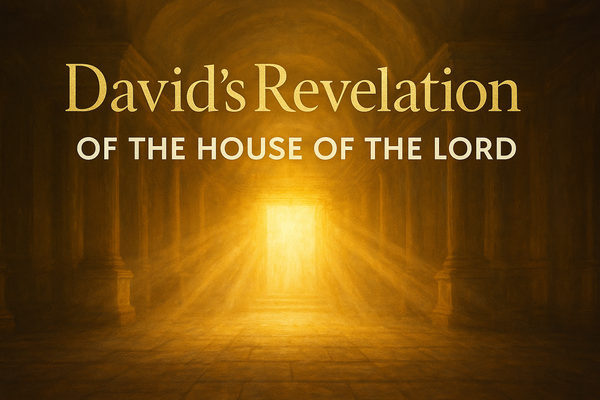
David's Revelation of the House of the Lord
This sermon explores how David’s relationship with God birthed a unique revelation about the sacredness of God’s house — not as a building, but as the dwelling place of His presence.
Psalm 122:1 captures his joy: “I was glad when they said unto me, Let us go into the house of the Lord.” Unlike others, David understood that God’s presence in the sanctuary wasn’t just symbolic; it was transformative.
Exodus 25:8 reminds us that God’s heart was to dwell among His people. David’s psalms show how the house of the Lord shaped his emotions, priorities, and peace — it was the anchor of his entire life.
However, as Psalm 73 illustrates, there are moments when perspective fades until one “goes into the sanctuary” — then everything becomes clear again.
This sermon is about rediscovering that same revelation — that the house of the Lord is where clarity, peace, and presence meet.

Where's God? - Pastor Brimingham
Everything in creation has a center — planets, electrons, even our spiritual lives. The question “Where’s God?” challenges believers to evaluate whether God truly sits at the center of their existence or merely in the margins. Matthew 6:33 (“Seek first the Kingdom of God”) and Psalm 119:1–3 emphasize prioritizing God as the core around which our lives orbit.
Key Message:
God’s design for order begins when He is in the middle. The sermon reveals how both natural creation and the Israelites’ wilderness encampment model this principle — life only finds stability when God is the gravitational center.

What's Your Response - Pastor Brimingham
This sermon centers on the urgency and immediacy of responding to Jesus’ call. The focus on words like “straightway” and “immediately” highlights a decisive faith—one that acts without hesitation when God calls.
In Matthew 4, the disciples leave everything at once to follow Jesus, illustrating obedience born from divine drawing (John 6:44). John 21 reveals Peter’s redemption, emphasizing how our responses—even after failure—can still align with God’s calling when we choose Christ again. John 5:2–4 reinforces this theme, showing that those who act quickly in faith receive the blessing.

God's Washing Machine - Pastor Brimingham
This sermon focuses on God’s redemptive process of cleansing sin, using the metaphor of a washing machine to illustrate how God takes our lives—stained by sin—and through His process of repentance, forgiveness, and renewal, makes us pure again.
- Isaiah 1:18 — “Though your sins are as scarlet, they shall be white as snow.”
- Ephesians 5:26–27 — The washing of water by the Word.
- Hebrews 9:22, Matthew 26:27–28 — Cleansing through the blood of Christ.
- 2 Corinthians 5:21 & John 1:29 — Christ as the Lamb who removes sin.
- Romans 11:26–27 & 1 John 3:4–5 — God’s covenant to remove iniquity.
This “washing machine” is not literal but spiritual: a divine process that restores what was once dirty and broken into something new and spotless.
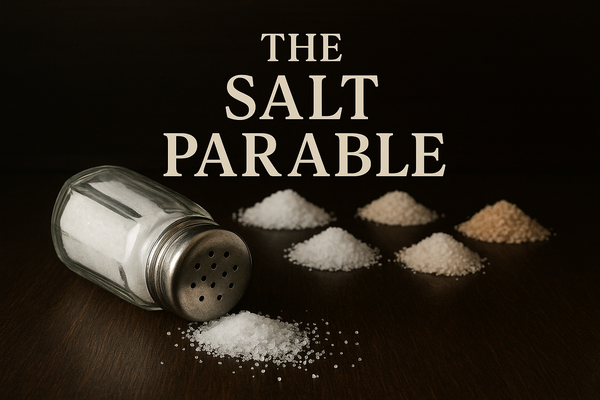
The Salt Parable - Pastor Brimingham
We know how we use salt today and when Jesus says "Ye are the salt of the earth..." we may only apply it to what we use it for today. But what common understanding did those in Bible times have about salt which we may be missing the revelation of today if we truly are to be the "Salt of the earth?"
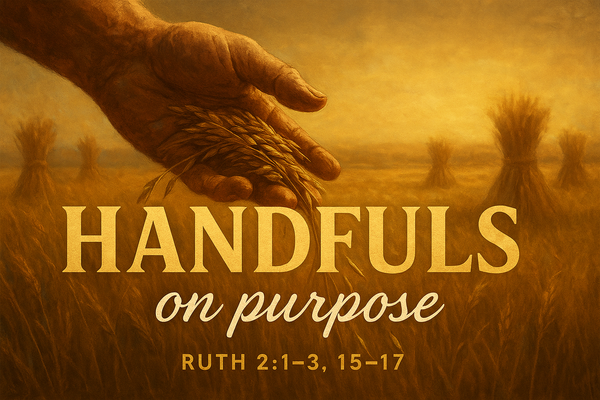
Handfuls On Purpose - Pastor Brimingham
This sermon draws from the story of Ruth gleaning in the fields of Boaz. The phrase “handfuls on purpose” refers to Boaz’s deliberate kindness — instructing his reapers to leave extra grain behind for Ruth. It represents God’s intentional provision and grace: blessings that appear coincidental but are purposefully placed in our paths.

The Makings of A Miracle - Pastor Brimingham
Title: The Makings of a Miracle
Scripture: 2 Kings 4:1–7
This passage describes a widow in desperate need who, through faith and obedience, gathers empty vessels to be filled with oil. God miraculously multiplies what she has until every vessel is full. Spiritually, this mirrors how God calls His people to bring in empty lives—souls in need of His Spirit—so He can fill them with His presence. The “miracle” is not only in the oil, but in the preparation, obedience, and willingness to gather emptiness for God to fill.

His Star - Evg Marvin Pulley

New Shoes - Evg Marvin Pulley
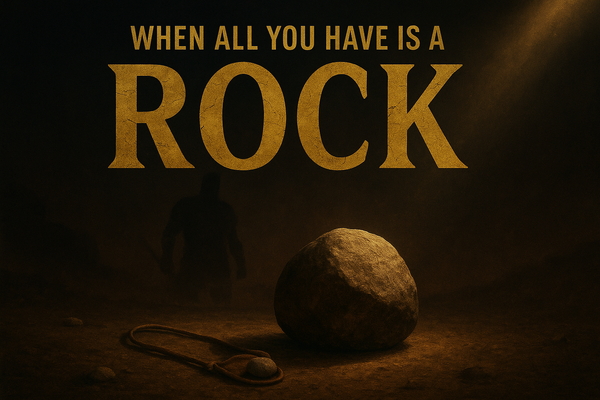
When All You Have Is A Rock - Pastor Brimingham
The sermon “When All You Have Is A Rock” weaves together several moments in Scripture where a single rock became the foundation for God’s power, provision, and presence:
- Jacob: With nothing but a stone pillow, he encounters God and receives a vision of the covenant.
- David: A single stone in his sling brings victory over Goliath.
- Moses: Striking the rock provides life-giving water in the desert.
- Christ: The ultimate “Rock” of our salvation, the spiritual foundation upon which everything is built.
The central theme: God takes what seems small, ordinary, or insufficient — a rock — and makes it the symbol of strength, provision, and deliverance.

If You Are Willing and Obedient - Pastor Brimingham
The sermon titled “If You Are Willing and Obedient” draws from a rich set of scriptures that all revolve around choice, obedience, and wholehearted devotion to God.
- Isaiah 1:18–19 & Deuteronomy 30:19–20 establish the foundation: God sets before us life and blessing or death and cursing—and calls us to choose Him.
- Joshua 24:15 & 1 Kings 18:21 highlight the decisive moment: we cannot waver between two opinions—we must choose.
- Acts 26:20 & Romans 13:13–14 show that true repentance requires action: putting away sin and making no provision for it.
- John 21:15 reminds us that choosing God means loving Him more than past passions.
- Proverbs 14:34–35 promises the outcome: righteousness exalts a nation, but sin brings shame.
The message is clear: God is rooting for us, but the choice is ours. Willingness and obedience unlock the blessings of God.
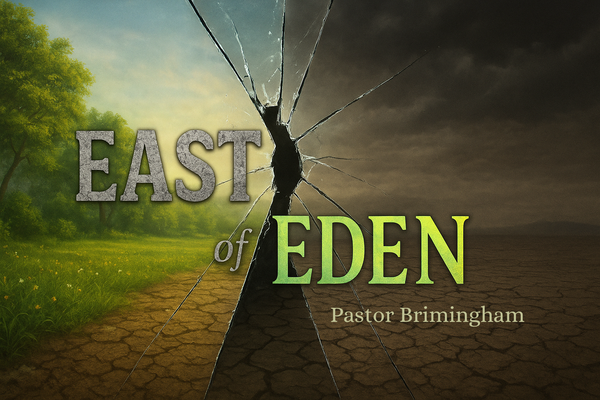
East of Eden - Pastor Brimingham
Genesis 3:20–24 captures the heartbreaking moment when Adam and Eve are expelled from Eden. East of Eden is not merely a location—it’s a spiritual condition: separation from God’s perfect design. The once lush garden is now behind them, and eastward lies hardship: the first murder, fractured families, poverty, and barrenness. This sermon paints a vivid contrast between God’s intended paradise and the stark reality of life away from Him.
But, is Eden still available for us to enjoy in the world today?
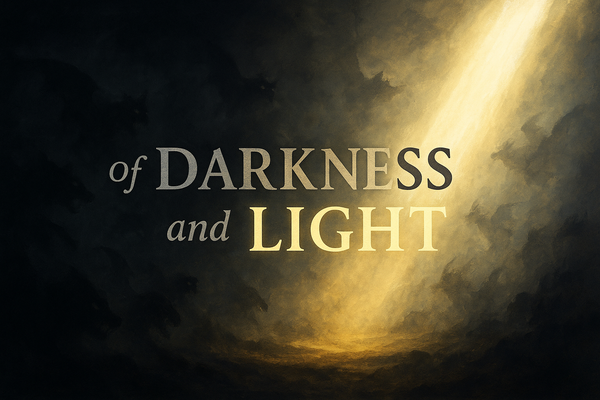
Of Darkness and Light - Pastor Brimingham
This sermon traces the journey of humanity from the shadow of Adam’s sin into the radiant hope found in Christ.
-
Micah 7:8–9 – Even when we fall into darkness, the Lord will be our light.
-
John 8:12 – Jesus proclaims Himself as the Light of the world, guiding us out of darkness.
-
Psalm 104:20 – Darkness is the domain where hidden dangers stir; symbolic of spiritual threats.
-
Luke 15:8–10 – Like the woman who lights a candle to find what’s lost, we are called to illuminate our homes, hearts, and communities with God’s Word.
The overarching theme is that we are all born into darkness but God shines His truth to reveal the way, protect us from unseen spiritual dangers, and reclaim what’s been lost.
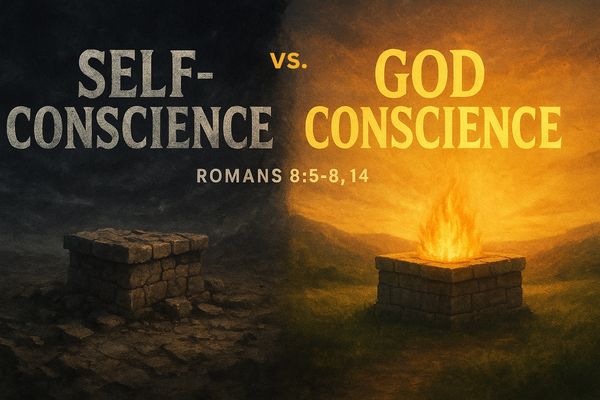
Self-Conscious vs. God-Conscious - Pastor Brimingham

Making Good Ground - Pastor Brimingham

God Wants You - Bro Alexander Brimingham
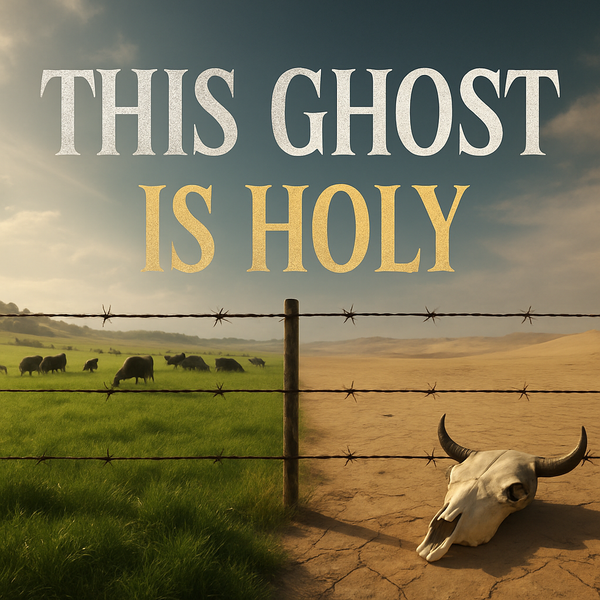
This Ghost is Holy - Pastor Brimingham
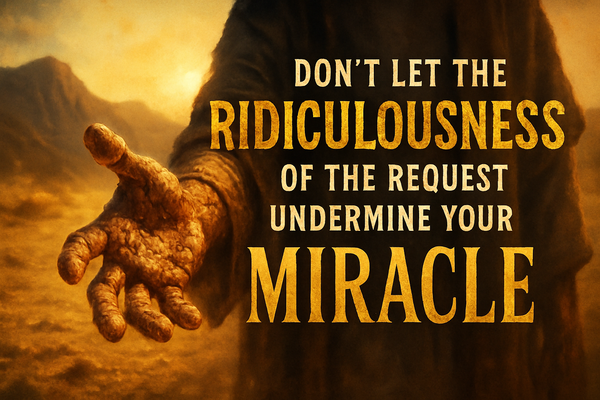
Don't Let the Rediculousness of the Instruction Undermine
This sermon centers around the seemingly illogical or counterintuitive instructions God often gives to unlock divine miracles. Using key stories from Luke 5, Joshua 6, and Matthew 12, it highlights a consistent spiritual principle: obedience to God—even when the instruction sounds ridiculous—is often the very thing that activates breakthrough.
-
Luke 5:4-9 shows Peter, an experienced fisherman, obeying Jesus' request to cast his nets again, leading to a miraculous catch.
-
Joshua 6:1-10 describes the Israelites circling Jericho in silence, a bizarre battle strategy that results in supernatural victory.
-
Matthew 12:13 involves Jesus telling a man with a withered hand to stretch it out—something that seems physically impossible until the man acts in faith.
The message encourages believers not to dismiss divine guidance based on human logic. The "ridiculous" is often the road to the miraculous.
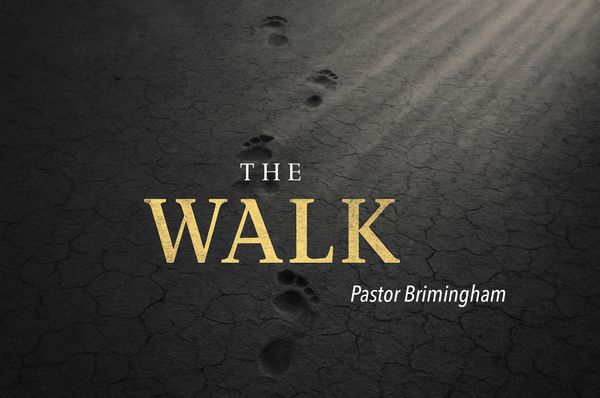
The Walk - Pastor Brimingham
This sermon, titled "The Walk," explores the spiritual and moral significance of the daily decisions we make—especially from the perspective of fathers. The scriptures present a clear dichotomy between walking in alignment with God's statutes and walking contrary to His commands. Leviticus 26 underscores both the blessings and consequences that hinge on this choice. Psalm 1 contrasts the path of the godly with that of the ungodly, while Psalm 81 reflects God’s grief when His people choose their own counsel. Deuteronomy 30 reinforces the weight of our choices—life and death are set before us. Proverbs 20:7 highlights the generational blessings that stem from a righteous father’s walk.
Key Emphasis:
-
Our daily walk reflects our relationship with God.
-
Fathers, in particular, carry a legacy through their walk.
-
There is a divine invitation to walk in obedience, and a warning for when we choose our own way.

The Tug of War - Bro. Phillip Nelms
“ The Tug of War” explores the spiritual and doctrinal conflict between old religious expectations and the transformative power of Christ’s New Covenant. In Galatians 6:11–15, Paul confronts the Jewish insistence on circumcision as a requirement for salvation. He reveals that the true mark of salvation is not outward ritual, but inward renewal—a person becoming a new creature in Christ.
This sermon highlights the internal and external tensions believers face: pressure to conform to the world, to family, and to carnality. It emphasizes the sufficiency of grace, and the identity of the believer as transformed, not merely modified.

Is Your Mouth Bigger Than Your Adversary - Pastor Brimingham
This sermon explores the power of verbal declarations and faith-filled prayer in overcoming spiritual and emotional adversaries. In 1 Samuel 1, Hannah cries out to God in bitter anguish, and her heartfelt plea leads to a divine breakthrough—the birth of Samuel. Revelation 12:11 proclaims that believers overcome “by the blood of the Lamb and by the word of their testimony.” Together, these scriptures illustrate how the spoken word, grounded in faith, can break strongholds, silence opposition, and birth new beginnings.
The sermon challenges believers to examine whether their verbal expressions—praise, prayer, and testimony—carry more weight, authority, and faith than the accusations, lies, and opposition thrown at them.
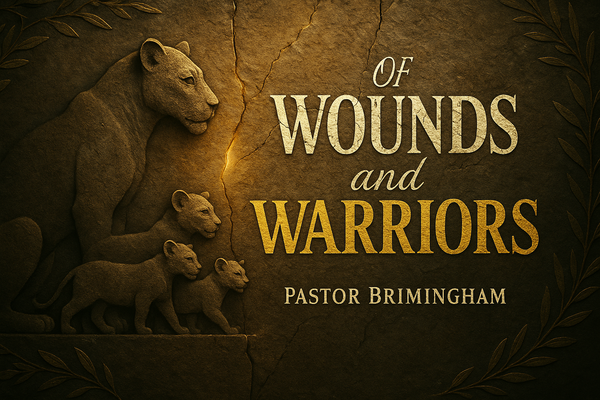
Of Wounds and Warriors - Pastor Brimingham
This sermon unpacks the power of spiritual motherhood through the lens of Zeruiah—a wounded woman whose name literally means “my wounds,” yet she raised three mighty warriors: Abishai, Joab, and Asahel. Ezekiel 19:2–3 speaks of a lioness who raises her cub among other lions, preparing him to devour prey. This aligns with Zeruiah’s legacy: a woman who endured wounds, but still nurtured strength, valor, and purpose in her sons. The sermon emphasizes the importance of not transferring pain to the next generation, but instead cultivating warriors of character, not bitterness.
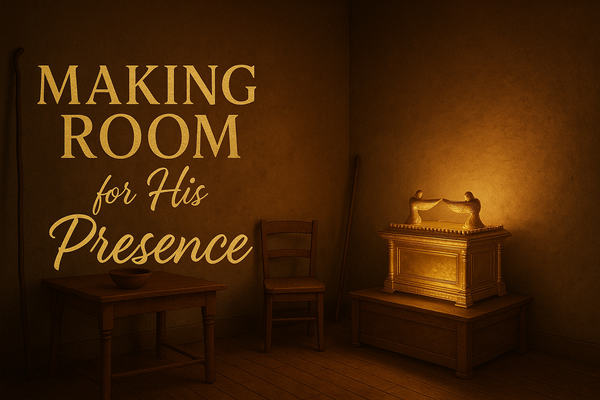
Making Room for His Presence - Pastor Brimingham
This sermon explores the transformative power of God's presence when we intentionally make room for Him in our daily lives. The story of Obed-Edom in 2 Samuel 6 shows how the Ark of the Covenant—representing God’s presence—brought immense blessing to a household that welcomed it. Psalm 16:11 echoes this theme by reminding us that joy and eternal pleasures are found in God’s presence. The message centers on the idea that we are in control of the depth of our experience with God. When we surrender our will, God’s will takes over.

I Am Doing A Great Work - Pastor Brimingham
This sermon focuses on spiritual determination and unwavering commitment in the face of opposition. Nehemiah’s words are a bold declaration of purpose—he refuses to be lured away by distractions or intimidation. The people, unified in vision, rebuild the wall with one hand holding a tool and the other a weapon, symbolizing readiness, spiritual focus, and dual commitment to construction and defense.
The sermon draws a powerful parallel to modern believers: spiritual productivity and steadfast focus are the secrets to resisting the devil’s tactics. The message encourages listeners to stay on the wall—on mission—and not be drawn away by fear, manipulation, or distraction. It is a rallying cry for spiritual resilience.
Learning To Hold It While You Wait - Pastor Brimingham

Don't Forget Your Layaway - Pastor Brimingham
This sermon explores the concept of deferred spiritual reward—heavenly treasures, promises, and rewards that are set aside for believers who remain faithful. The “layaway” metaphor connects with the idea of something already paid for, waiting to be claimed. This message encourages believers not to forget that their labor, faith, and endurance are not in vain—God has reserved something for them. It’s a sermon of hope, perseverance, and heavenly focus.
The Holy Ghost - Pastor Brimingham
Go Dig A Well - Pastor Brimingham
Faith - Pastor Brimingham

The Blank Canvas - Pastor Brimingham
The message centers on spiritual rebirth and renewal, where God, after repentance and cleansing, begins to author or paint a brand-new story in our lives. John 3:1–5 emphasizes the concept of being “born again” through water and Spirit, while Psalm 51:2 is David’s plea for purification and washing from sin. Together, they create the image of a life once stained now made pure and ready for divine creation—a blank canvas in God’s hands.

Ornamentation - Pastor Brimingham
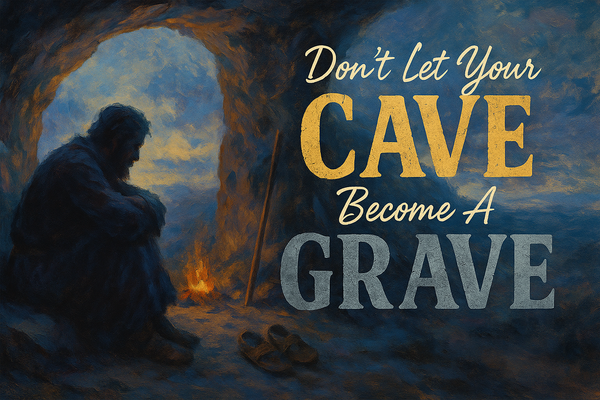
Don't Let Your Cave Become A Grave - Pastor Brimingham
This sermon centers on the metaphor of a cave as a place of temporary retreat, rest, or even hiding—a spiritual state familiar to many believers who feel overwhelmed, weary, or wounded. From Elijah's emotional cave of fear to Lazarus' physical tomb, the message reminds us that what was meant for death can be transformed by the presence of Jesus.
The key tension: Don’t settle in places God meant you to pass through.
-
Elijah’s Cave symbolizes temporary retreat due to fear and exhaustion.
-
Lazarus’ Grave illustrates that others may label something “over,” but Jesus can call life back into it.
-
The encouragement: Rest but don’t remain. Retreat but don’t resign. The cave isn’t your conclusion.
Good News, Bad News - Pastor Brimingham
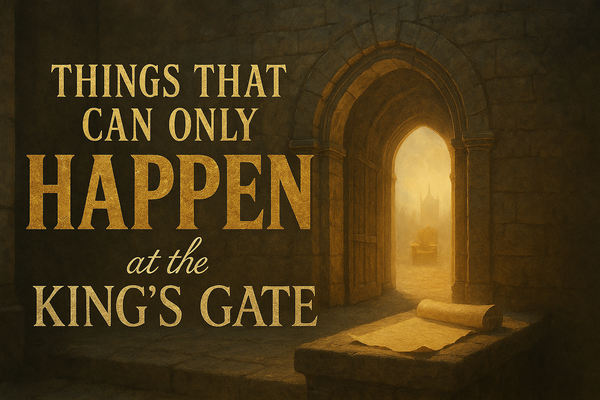
Things which Only Happen At the Gate - Pastor Brimingham
This sermon explores the profound transformation and revelation that occurs at “the King’s gate”—a symbolic intersection where divine purpose is revealed through spiritual proximity to God and His Church.
Esther 2:17–19 shows Mordecai positioned near the palace, where his connection to Queen Esther placed him in divine alignment for favor and revelation. Similarly, Jacob in Genesis 28:10–17 discovers that the seemingly ordinary place he rested was actually a supernatural gate to heaven. These scriptures emphasize that life-altering experiences, divine insights, and supernatural blessings occur not merely by chance, but because of positioning—being at the right gate, in the right spirit, at the right time.
The “King’s Gate” symbolizes a spiritual posture of access, alignment, and awareness of divine presence—a place where heaven meets earth.
The Best Is Yet To Come - Pastor Brimingham
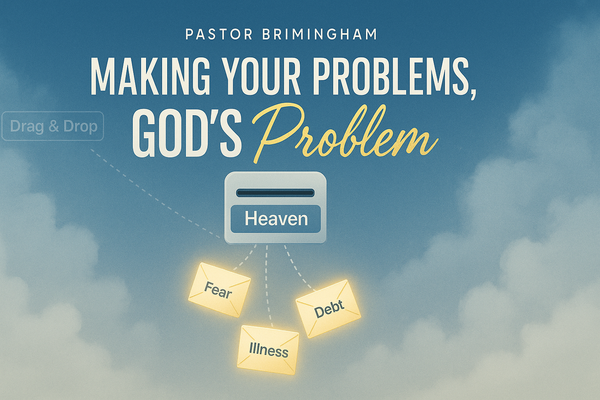
Making Your Problems, God's Problems - Pastor Brimingham
The Superpower of Invisibility - Evg Jeff Hanscom
Taking It Home To Live It - Evg Jeff Hanscom
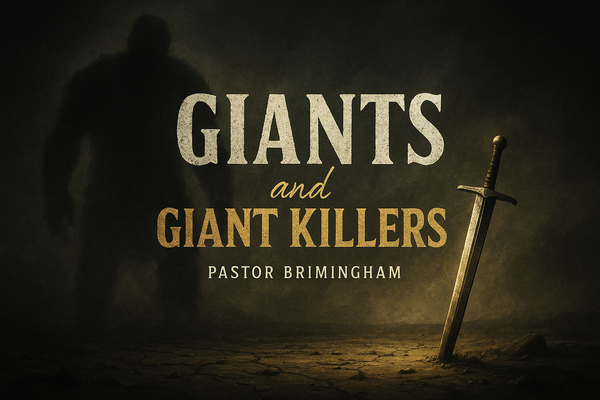
Giants and Giant Killers - Pastor Brimingham
This sermon explores the spiritual and emotional battles that must be won within before confronting external giants. The Israelites' journey illustrates a progression: before facing enemies like the Anakim, they had to conquer Jericho—symbolizing the battle of self-discipline, submission, and obedience. The sermon likely draws a contrast between the fear that caused the ten spies to see themselves as “grasshoppers” and the courageous obedience required to follow God’s instructions against Jericho. Once obedience and faith are established internally, believers can become "giant killers" externally. This message encourages conquering fear, embracing faith, and becoming bold through submission to God’s leadership.
The Apparel of the Godly - Pastor Brimingham
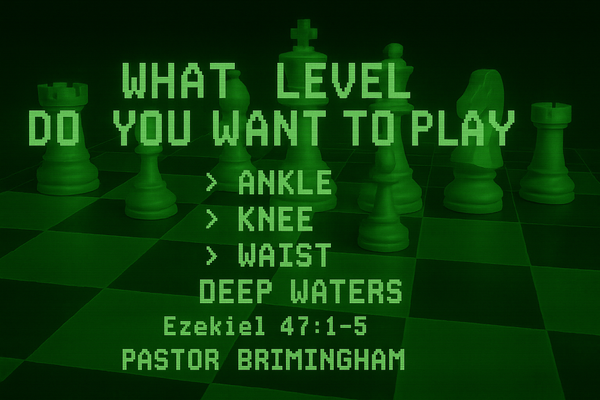
What Level Do You Want To Play? - Pastor Brimingham
This sermon draws a parallel between the progressive depths in Ezekiel’s vision of water flowing from the Temple—ankle-deep, knee-deep, waist-deep, and finally waters deep enough to swim in—and our spiritual journey. Just as old-school digital chess games began with the prompt “What level do you want to play?”, we are faced with a similar choice in our walk with God: to remain shallow or to dive deep. It’s a challenge to self-assess and decide if we’re content with surface-level faith or if we’re willing to go all in, into the depths where control is surrendered and God takes over.
I Am A Gatekeeper - Pastor Brimingham

Old Weapons Work Best - Pastor Brimingham
This sermon underscores the enduring power and effectiveness of time-tested spiritual disciplines—prayer, worship, faith, obedience, and the Word of God—as "old weapons" that still prevail in modern spiritual battles.
-
Jeremiah 6:16 calls people to return to the “ancient paths,” where the good way is.
-
2 Corinthians 10:4–6 emphasizes that our weapons are not carnal but spiritual and mighty for demolishing strongholds.
-
David’s choice to reject Saul’s advanced armor in favor of his well-worn sling shows the power of trusting in what God has proven.
-
Jehoshaphat positions worship—not weapons—on the front lines, and God grants victory.
The core message is this: God’s time-honored tools are still the most effective. In an age of “newer is better,” this sermon calls us back to the fundamentals of faith that have always worked.
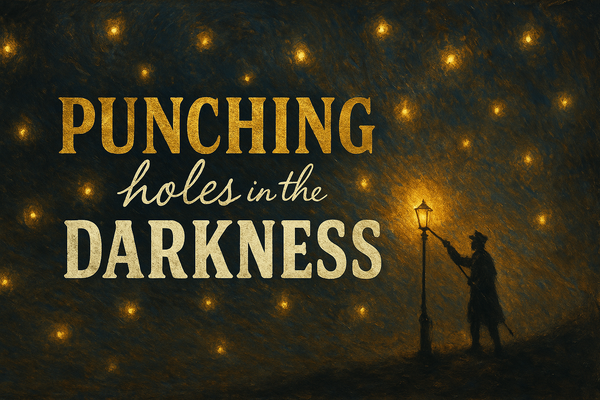
Punching Holes in the Darkness - Pastor Brimingham
This sermon draws on the metaphor from Robert Louis Stevenson’s story of the lamplighters, where a young Stevenson watched the evening sky and marveled as lamplighters lit the streetlamps. To him, it looked like they were “punching holes in the darkness.”
The message focuses on believers' calling to shine as light in a dark world.
-
Ephesians 5:8 speaks to transformation — “you were once darkness, but now you are light in the Lord.”
-
Psalm 119:130 reminds us that God's Word gives light and understanding.
-
John 3:19-21 contrasts light and darkness, explaining why people often choose darkness.
-
John 8:12 centers Jesus as the “Light of the World.”
Together, these verses highlight our spiritual identity and responsibility to carry Christ’s light into the world, igniting hope, clarity, and moral courage wherever there is confusion, sin, or despair.
Gods Search for A Vessel - Pastor Brimingham
The Angry Taskmasters of Egypt - Pastor Brimingham
God Sees Whats Hidden - Pastor Brimingham
The House of Prayer - Evg Tony Lundy
The Hand of Mercy - Evg Tony Lundy
When the Enemy Camps On Your Praise - Pastor Brimingham
The Way To Escape - Evg Tony Lundy
The Sound of A King - Pastor Brimingham
Playing Hide & Seek With God - Pastor Brimingham
It's All About His Spirit - Pastor Brimingham
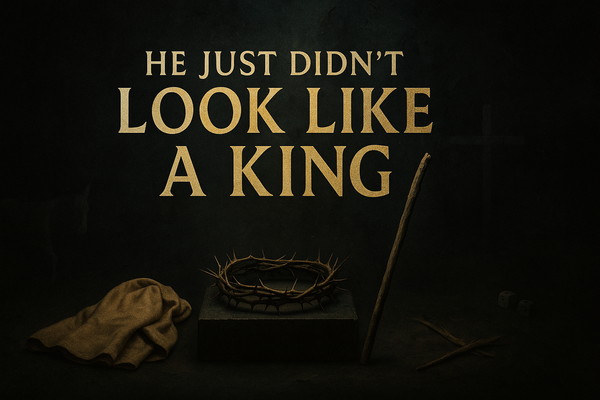
He Just Didn't Look Like A King - Pastor Brimingham
This sermon explores the paradox of Christ’s kingship through the lens of Isaiah 53:1-4, Luke 4:22, and Philippians 2:5-11. The core theme contrasts worldly expectations of royalty with the humility and suffering of Jesus. Isaiah speaks of the Messiah as having “no beauty that we should desire Him,” while Luke describes the crowd's disbelief that someone so ordinary could claim divine authority. Philippians emphasizes Jesus’ self-emptying humility — choosing servanthood over spectacle.
Each supporting point powerfully underscores the inversion of royal imagery:
-
No chariot, only a donkey.
-
No royal robe, only a tunic gambled away.
-
No home, riches, or kingdom.
-
No scepter, just a mocking reed.
-
No majestic crown, only thorns.
-
No praise, only the jeers of crucifixion.
-
No vengeance, just radical forgiveness.
This sermon will challenge the audience to rethink what true kingship and power look like in God’s kingdom.
